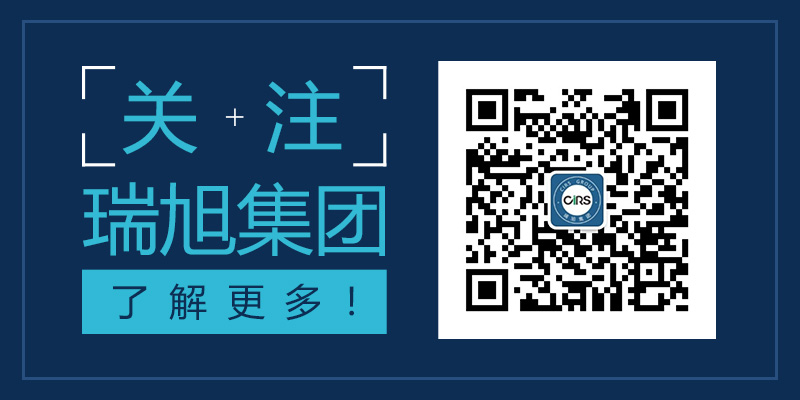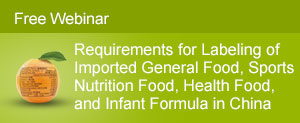In China, food additives are mainly regulated by the following laws:
- Food Safety Law;
- The Regulations for Implementation of Food Safety Law.
- The Measures for The Administration of New Food Additives(revised in 2010) - Order No. 73 of MoH;
- Administrative Measures for the Manufacture of Food Additivies - Order No. 123 of AQSIQ
- GB 2760-2011 Food Safety National Standards for the Usage of Food Additives
- GB 14880-2012 Food Safety National Standards for the Usage of Nutrition Enrichment
- GB xxxx-xxxx Food Safety National Standards - General Rules for the Labeling of Food Additives(Draft)
- GB 7718-2011 Food Safety National Standards - General Rules for the Labeling of Prepackaged Foods
New!
10 April 2013, New Regulatory Obligations on Exporting Colostrum, Raw Milk and Dairy Products into China. Clickhere.
Food additives should be technically necessary and proven to be safe and reliable based on a risk assessment before being used. Use of a food additive shall comply with the following requirements:
10 April 2013, New Regulatory Obligations on Exporting Colostrum, Raw Milk and Dairy Products into China. Clickhere.
Food additives should be technically necessary and proven to be safe and reliable based on a risk assessment before being used. Use of a food additive shall comply with the following requirements:
- Not intended to cover up food rancidness;
- Not intended to cover up quality defects of the food itself or during the food processing;
- Food additives not used for adulteration or falsification;
- Should not reduce the nutrition value of food;
- Reduce dosage levels as much as possible once anticipated effects are achieved;
- Food processing aids used in the course of food processing should be removed before the final product is produced, unless a residue level is specified.
In addition, food additives are allowed to be used in China only if they are:
- covered by national food safety standards GB 2760 & GB 14880;
- within the list of allowable food additives announced by the Ministry of Health (MOH); and
- within the scope of allowed applications and dosage levels;
Any additive that does not meet all three criteria above will be regarded as new food additive and requires registration and further risk assessment.
If you use food additives in China or sell food additives to China, it is very important to determine whether the additive is new or not. If the additive is new, registration of the additive with MoH is required.
GB 2760-2011 Food Safety National Standards for the Usage of Food Additives (CN version free download)
The latest edition of GB 2760 was published on the 20th of April 2011 and entered into force on the 20th of June 2011. This standard specifies the basic principle for the usage of food additives, food additive types, application scope and maximum allowable dose level.
More info about this standard can be foundhere.
More info about this standard can be foundhere.
GB 14880 Food Safety National Standards for the Usage of Nutrition Enrichment (CN version free download)
GB 14880 specifies a list of allowable food additives used as food nutrition enrichments and their maximum dose levels. More info about this standard can be foundhere.
How to check if a food additive is legal in China
China national standard GB2760-2011, standards for uses of food additives, specifies the principles for application of food additives, allowed food additive varieties, scope of application, maximum limits and residue requirements. The final version was issued by the Ministry of Health (MOH) on April 20, 2011 and implemented on June 20, 2011.
China national standard GB14880-2012 specifies the dose level of food additives used as food nutrition enrichments.
From 2011 to 2013, many new food additives have been approved by MOH through Public Notice of MOH. These food additives are now allowed to be used in China. Meanwhile, any food including these food additives can be legally made available on Chinese market.
In the case of the food additive is covered by the National Standard GB2760-2011, GB14880-2012 or covered by any MOH Notices, it is considered as existing food additives and is allowed in China. Other applications, varieties and dosage levels, which are not listed in the GB2760-2011 or any Notice of MOH, will be regarded as new food additives and will be required to be registered.
How to apply for a new food additive in China? (coming soon)
If you would like to get the English version of GB GB2760-2011, GB14880-2012 and all lists of newly approved food additives, please complete this order form .
China national standard GB14880-2012 specifies the dose level of food additives used as food nutrition enrichments.
From 2011 to 2013, many new food additives have been approved by MOH through Public Notice of MOH. These food additives are now allowed to be used in China. Meanwhile, any food including these food additives can be legally made available on Chinese market.
In the case of the food additive is covered by the National Standard GB2760-2011, GB14880-2012 or covered by any MOH Notices, it is considered as existing food additives and is allowed in China. Other applications, varieties and dosage levels, which are not listed in the GB2760-2011 or any Notice of MOH, will be regarded as new food additives and will be required to be registered.
How to apply for a new food additive in China? (coming soon)
If you would like to get the English version of GB GB2760-2011, GB14880-2012 and all lists of newly approved food additives, please complete this order form .
Registration of New Food Additives in China
New food additives are regulated by the Order 73 of MoH - The Measures for The Administration of New Food Additives, which came into force on March 10, 2010. This law has replaced The Measures for Hygienic Administration of Food Additives issued on 28 March 2002.
An individual or organization intended for production, operation, use or import of a new food additive shall apply for a license from MOH.
The following materials shall be submitted:
An individual or organization intended for production, operation, use or import of a new food additive shall apply for a license from MOH.
The following materials shall be submitted:
- Common name, function category, dose level and application scope of the additive;
- Documents or certificates to prove technical necessity and use effect;
- Quality specification requirements, production techniques and testing method for the food additive, as well as the method or instruction to test the additive in food;
- Safety assessment materials, including raw materials or sources, chemical structure and physical properties, production techniques, toxicology safety assessment documents or testing reports on toxicology, and testing reports on quality specifications;
- Samples of labeling, instructions and food additive product;
- Documents of other countries (regions) or international organizations allowing production and use of (the additive) that are helpful to the safety assessment;
Please note: Some documents can be waived for the applications of enlarged application scope or dose levels.
After receiving applications, MOH shall organize experts from relevant fields to perform a technical review on the technical necessity and safety assessment materials of the new food additive variety and produce a conclusion about the technical review within 60 days upon receipt of the application.
Based on the conclusion of the technical review, the Ministry of Health shall grant a license to the new food additive variety that is technically necessary and meets the food safety requirements and shall include it in the list of allowable food additives for publication.
For additives that lack technical necessity or fail to meet food safety requirements, the Ministry of Health shall reject the application and provide a written justification.
Order No. 73 of MoH is available in English upon request.
Labeling of Food Additives in China
The Ministry of Health(MoH) is working on a draft national standard for the labelling of food additives. The draft standard was released in August 2011. In accordance with this draft, “Food Additive” shall be clearly presented in the prominent place of a label. The names o food additives must be consistent with GB 2760 or GB 14880 or the notice of MoH. Each additive shall be declared in a descending order of the content of each ingredient. The scope of use and the allowable dosage of a food additive as well as its application method shall also be given. In case of compound additives, the quantity of each food additive shall be indicated in a descending order. However, the content of each ingredient for a compound food additive does not need to be given in case of non-retail sales of food additive.
When food additives are used in prepackaged food for direct delivery to consumers, they shall be indicated on the label in descending order of their weights added in the process of manufacture or preparation of the food. The names of those food additives shall be declared in general names in accordance with GB 2760. The content of each ingredient does not need to be declared. This labeling requirement is specified in GB 7718-2011 Food Safety National Standards - General Rules for the Labeling of Prepackaged Foods.
When food additives are used in prepackaged food for direct delivery to consumers, they shall be indicated on the label in descending order of their weights added in the process of manufacture or preparation of the food. The names of those food additives shall be declared in general names in accordance with GB 2760. The content of each ingredient does not need to be declared. This labeling requirement is specified in GB 7718-2011 Food Safety National Standards - General Rules for the Labeling of Prepackaged Foods.
Our Services
- Regulatory Advice for Food Additives;
- Registration of New Food Additives;
- Labeling for Food Additives and Pre-packaged Food;
About Us and Contact
Initially set up by China Inspection and Quarantine(CIQ) Bureau in 2007 to provide REACH compliance services to Chinese chemical industry, CIRS has grown to be a leading provider of comprehensive chemical compliance services for companies doing businesses in/with China.
Our services cover new substance notification, registration of the import and export of toxic chemicals, registration of hazardous chemicals, classification and labeling in according to China GHS, Chinese SDS, risk assessment of industrial chemicals, food additives and cosmetic ingredients. We provide one-stop solutions to your regulatory issues in China.We also deliver the most up-to-date regulatory information about chemical control laws in China.
Ms. Cathy Yu, Senior Consultant, Food Safety Regulation, CIRS China
Our services cover new substance notification, registration of the import and export of toxic chemicals, registration of hazardous chemicals, classification and labeling in according to China GHS, Chinese SDS, risk assessment of industrial chemicals, food additives and cosmetic ingredients. We provide one-stop solutions to your regulatory issues in China.We also deliver the most up-to-date regulatory information about chemical control laws in China.
11F Dongguan Building, 288 Qiuyi Road, Binjiang District, Hangzhou, China, 310020
Tel : +86 571 8720 6538 | Fax : +86 571 8720 6533
Email: cathy.yu@jianzaoshiwang.cn






